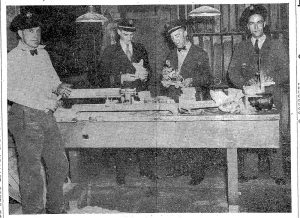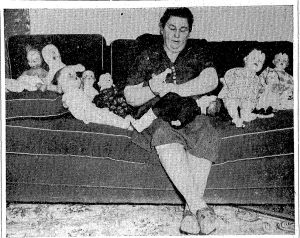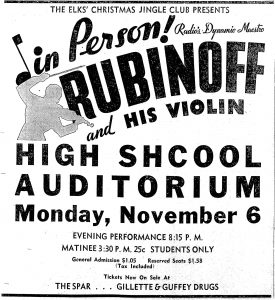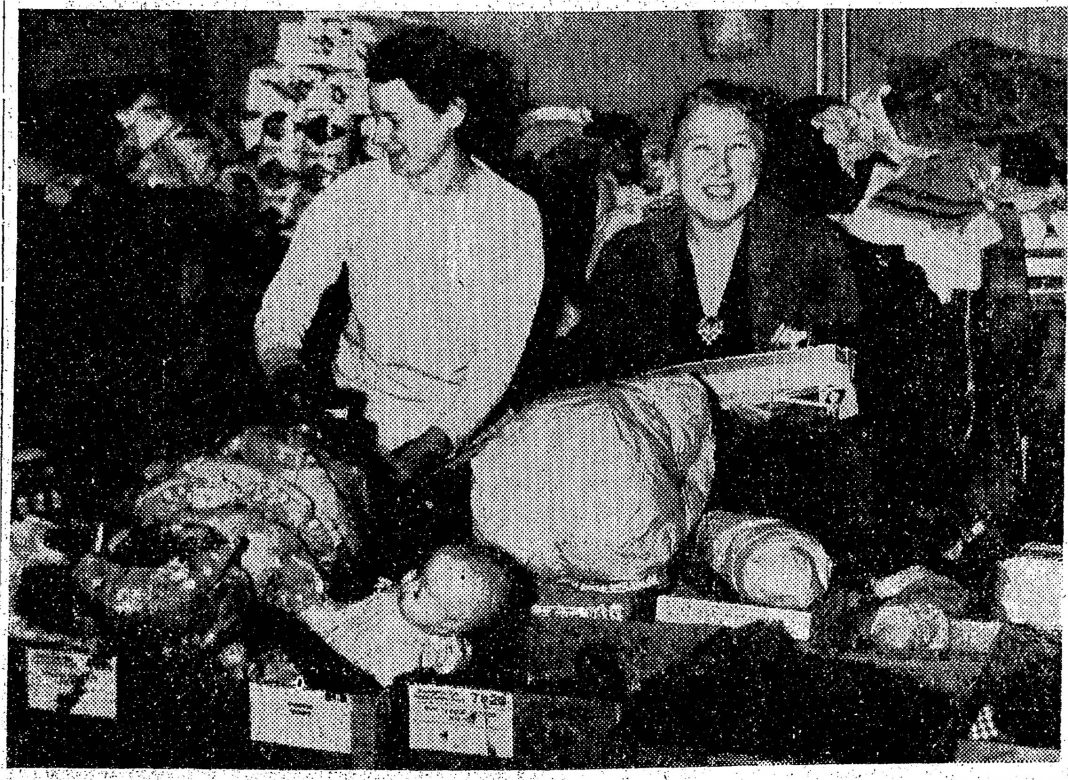Helping children and families in need during the holidays is an important annual activity for numerous organizations and clubs in Olympia and Thurston County. During the dark days of the Great Depression of the 1930s, when many families were facing poverty, one of the most active organizations was the Elks’ Jingle Club. Though times have changed, the Elks continue to help their community today through the Jingle Club.
 Olympia’s Elks Lodge #186 was founded in 1891, as a social club. They also were active in helping their community. In an attempt to make charity work more effective around Christmas, the Elks coordinated with the Salvation Army, Red Cross and other organizations in 1927 to form the Jingle Club. While this coordination was not unprecedented, the Jingle Club turned to a new medium to raise money: radio.
Olympia’s Elks Lodge #186 was founded in 1891, as a social club. They also were active in helping their community. In an attempt to make charity work more effective around Christmas, the Elks coordinated with the Salvation Army, Red Cross and other organizations in 1927 to form the Jingle Club. While this coordination was not unprecedented, the Jingle Club turned to a new medium to raise money: radio.
KGY, the area’s first commercial radio station, was founded in 1922 by Father Sebastian Ruth, at Saint Martin’s College (now University). A community-spirited man, he allowed the Elks to hold a special hour-long live musical program on Sunday evenings throughout November and December. Listeners could call the college and, for a small donation, request songs from the local musicians.

Besides raising money, the Jingle Club collected food, clothing and toys. Volunteers packed baskets and delivered them. Families from throughout Thurston County could apply to the Jingle Club for aid and were also recommended and approved by the Red Cross and Salvation Army who helped distribute goods. In later years, Boy Scouts also helped deliver items. The first year, the gift baskets came with a chicken for Christmas dinner.
In 1927, many of the traditions that later years would build upon began. This included an annual American Legion-sponsored boxing match whose proceeds went to the Jingle Club fund (an annual golf tournament would be added in 1932). Contributions increased the next year, but in 1929 the County was seeing increasing need on the heels of the stock market crash. As people became less able to donate money, the “jinglers,” as they were often called, got more creative and started extending their activities.

During the holiday season of 1930, the Jingle Club held a “food matinee” at Olympia’s Liberty Theater, collecting food in lieu of admission to the movies. In 1931, the economy had worsened further and a children’s shoe drive was undertaken during the new year since Christmas shoe donations fell short. The female Jingle Club auxiliary held a bazaar to sell homemade gifts and food in May and November. In the fall, the Club organized a “bundle drive” with the Salvation Army, Red Cross and County relief agency, collecting clothing for people of all ages, as well as furniture. The Jingle Club also took donations of cribs and cookstoves for families. One family that received a wood stove had been using an overturned galvanized wash bin to cook on.
In-kind donations increased as people had less cash to give. Several South Bay farmers offered the poor the opportunity to pick berries on their farms for free. The owners of the Mountain View Golf course donated fruit from the trees on its grounds and the State Fisheries Commission gave away a ton of salmon to be distributed throughout the year. Business owners helped encourage donations with incentives. For example, local interior designer and retailer Jimmy Drees gave away toy ironing boards to girls who donated old dolls for the sale.

The female auxiliary of the Jingle Club met all year and sewed blankets to give away and mend donated clothing. They also canned fruit that had been donated. Besides the auxiliary, more clubs were participating, especially womens groups. Olympia’s Zonta Club collected dolls at their annual Christmas parties while Girl Scouts and the Tumwater Homemakers Club sewed doll clothes. Olympia High School held annual musical revues to raise money.
By the late 1930s, Olympia firefighters became major supporters of the Jingle Club. At the fire station, they worked for weeks repairing and repainting donated toys. They also carved new wooden toys. Repairing used toys was a major activity and for years Laura Bodley ran a small “doll hospital” mending dolls donated to the club and sewing them new wardrobes.
In addition, the Club sponsored the weekly KGY special broadcasts. Saint John’s Episcopal Church hosted the annual concert series for many years. By 1937, technology had changed so the concert was moved to the Elks temple where it was broadcast by KGY.
The coming of World War II brought an end to the Great Depression. Still the Jingle Club continued for many years to support children and families in need at the holidays, but also expanded its work to include Saint Peter’s Hospital and area nursing homes. Even now the Elks Club remains an active part of Olympia. The Elks Jingle Club remains in operation, continuing its legacy of helping others during the holidays.
















































